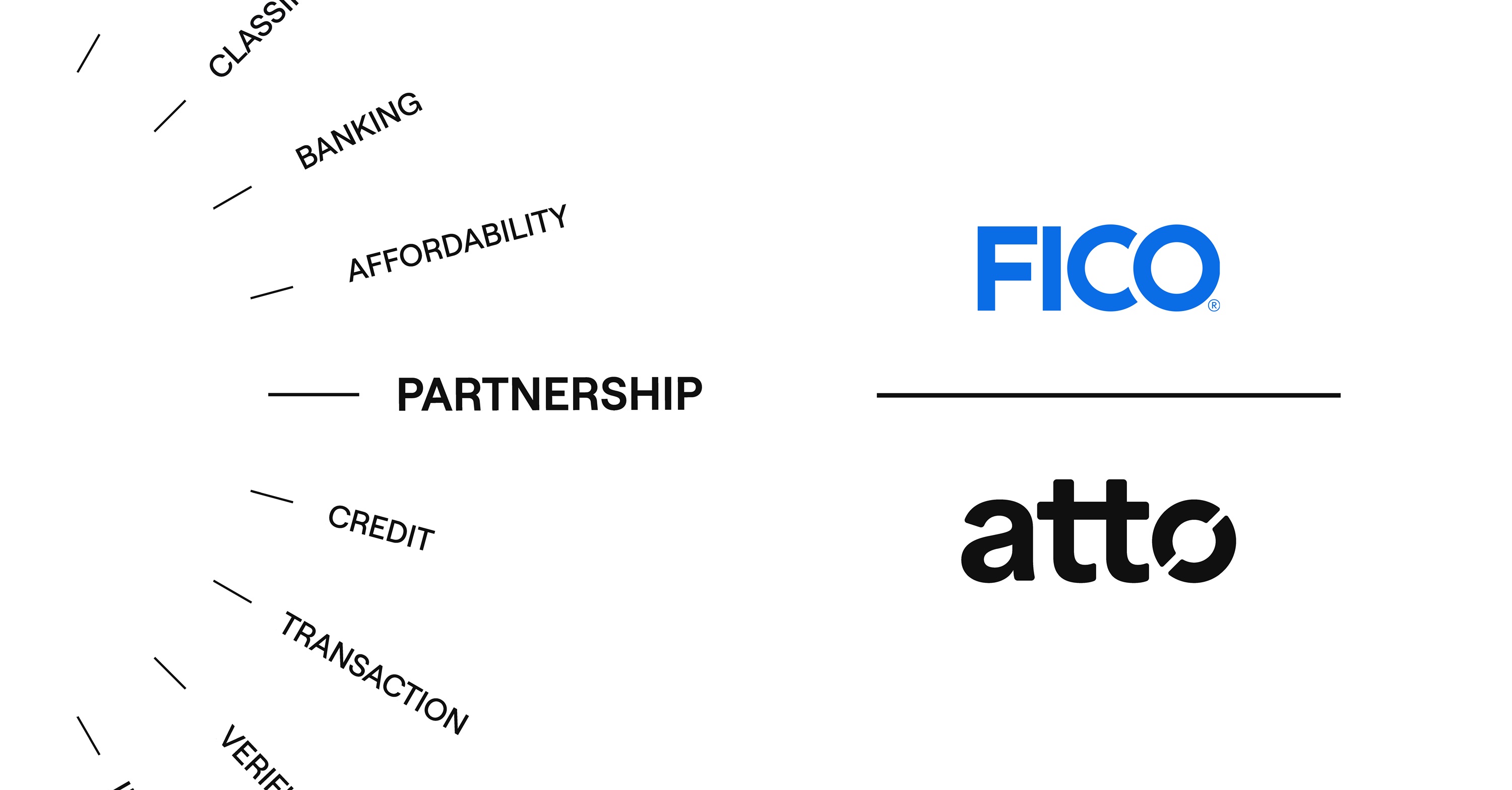Welcome to the Frictionless Finance Report, our monthly look at everything new in the world of Open Banking, FinTech, and consumer experience. If you’d like to receive this in your inbox, fill in the form at the bottom of the page. This month we examine the continued push towards a system of Open Finance, the impact on the financial system of a pandemic, and a big awards win for Atto.
But first, a word from the CEO;
I know this newsletter has brought knowledge and understanding to thousands over the last two years. I’m also aware that reading this today, it will lack the gloss that readers may have experienced previously.
I barely need to explain why. The current public health crisis is unlike anything seen in a century, afflicting the entire globe in the process.
We’ve taken the decision to publish the Frictionless Finance newsletter as usual this month – as well as continuing to work as normal, albeit from home. My reasoning comes from my conversations with Executives from across the world which have given me confidence that bank data will play its part in bolstering and reviving the global economy. As such, we’re as determined to continue developing the best possible product suite to the benefit of consumers, business and governments.
My thoughts are with all at this difficult time. Stay safe.
- James Varga, CEO, Atto
Overview
There has been some commentary provided by the regulators over the last month which is always worth considering. Colin Garland of the CMA, and Imran Gulamhuseinwala, Trustee of the OBIE have written on the progress made through Open Banking thus far, noting some of the extensive changes that it has already brought about, and pondering the impacts still to come.
Open Banking
The move from Open Banking to Open Finance continues to gain traction from different actors across the ecosystem. Indeed, it was the header for last month’s copy of this report. Over the early months of this year, we at Atto have heard an increasing clamour for a system of Open Finance to be introduced.
So, what has been the impetus? There has been much domestic legislation that has paved the way, particularly at European level. The introduction of the EU’s digital strategy, for example, is a significant precursor to an Open Finance system.
Then there has been legislation passed within other jurisdictions that have provoked the relevant discussion on whether it could work closer to home. In Australasia particularly, we have seen the Consumer Data Rights (CDR) passed in Australia, and in Hong Kong, the Monetary Authority of Singapore (MAS) has also been pushing forward with implementation of its own system.
Then we have the APIs, the plumbing that allows Open Banking and Open Finance to take place. Over the last two years we have seen a growing reliability in the API quality. As their reliance grows, we can begin considering how APIs can further support us in our objectives.
As Eli Rosner of Finastra points out, there is an overall shift in emphasis within banks to recognise that consumers are being driven ever more by experiences, and are looking for more from their bank than just transactions.
Carlos Figueredo of Open Vector explains to Finextra, this requires a shift in cultural mindset as well as technical specs. The rewards are great though – social inclusion and sustainable finance can both be brought about through a move towards Open Finance.
For a contrary look at how the future of banking may play out, FinTech Futures considers the system in the far east, where a few dominant players dominate entire ecosystems. In the Chinese variant, the system is very much not open, but closed.
Open Banking & Mortgages
There has been considerable coverage this year of the impact that open banking can have within the mortgage industry. This is not unfounded - Atto published a blog last year on the impact that Open Banking would have, and Atto is now powering a mortgage provider to make near instant and paperless decisions.
Mortgage Introducer has covered the overall benefits that can be felt for brokers, such as removing the need for pay slips and making more accurate decisions that take affordability into consideration. They acknowledge that consumers are not yet crying out for Open Banking, but that once the convenience is displayed to them, they will come round to the concept of using Open Banking to get a bespoke offer.
Mortgage Finance Gazette meanwhile, note that extending Open Banking to Open Finance would be beneficial for the industry to include mortgage account data.
Open Banking Abroad
In a slimmed down recap of the latest news from outside the UK, this week we focus on the US and Brazil.
📊 United States
The concept of whether the time is right for the US to consider the implementation of Open Banking is considered in the Financial Brand. While limited amounts of data sharing have been made available through concepts such as the Financial Data Exchange (FDX), at this time there is no push from Federal Government to make it happen. Recognising that the US is already quite far behind other countries, the article posits that it could allow banks to disseminate their products through third parties, and bring new product-lines to market, faster.
📊 Brazil
There is expectation in the south American country that Open Banking legislation will pass next year. Currently, there is a lot of conversation in Brazil over who the beneficiaries of Open Banking will be. There is concern among some of the incumbent banks – as there was in the UK – that smaller FinTech’s will be in a position to eat the bank’s lunch once Open Banking is made live.
Finance
Of course, the coronavirus outbreak has had a devastating impact on the financial services sector across the globe as individuals are confined to their homes and businesses shutter for the forseeable future.
The markets across the globe have suffered some of their worst falls since 1987, and banks have been at the forefront of those impacted.
The other points of conversation for finance houses around coronavirus include:
💥 The limit for contactless payments have been raised to £45 in the UK, as well as rises in other EU countries (Finextra)
💥 Banks across the UK have brought in a raft of measures to help consumers who have been adversely financially impacted by the virus. These include the introduction of mortgage holidays, increasing overdraft options and relaxing interest charges (Credit Strategy, FT [paywall], Money Saving Expert, Guardian)
💥 Many bank branches are now closing or working reduced hours (BBC)
💥 Banks have been urged by the Chancellor and the Bank of England to continue lending in these unprecedented times (City AM)
💥 Huge stimulus packages have been revealed by the ECB, Federal Reserve and Bank of England

American Revolution
Major American banks are potentially looking at expanding out of the US, with many eyeing the UK as a potential destination. Reports are surfacing that JP Morgan are looking to launch a digital bank in the UK. This follows the lead of Goldman Sachs, who launched their digital offering – Marcus – last year. JP Morgan already has a substantial payments based business in the UK.
Also this month, there has been a considerable amount written on the launch of new digital currencies. Reuters are reporting that Facebook is going to overhaul the proposition behind their Project Libra offering – potentially offering digital versions of government backed currencies. At the same time, Quartz and Bloomberg are reporting that both the Bank of England and the Bank of Canada are exploring options to create their own digital currencies.
In other news in the finance world, away from coronavirus:
💥 Revolut has launched an app for kids as well as applied for a UK banking license (Finextra and AltFi)
💥 The importance of bank branches has been highlighted by the Financial Brand
💥 As we have highlighted above, the rise in experiential banking has become ever more important to the success of banks. Which-50 has more.
FinTech
We have discussed the possibility of customers being granted financial services on myriad occasions, on these pages. In a recent survey, 64% consumers said they would be willing to try a financial product from one of Google, Amazon, Apple or Facebook. That said, 69% said they think it more likely that one of the tech companies will suffer a data breach than a finance house. News via Lend Academy and Banking Dive.
Best of the rest in FinTech
✅ Softbank is considering selling up to $41 billion worth of assets to return to profitability. The firm will buy back around $18 billion worth of shares to firm up financials. The firm has been negatively impacted by the Coronavirus outbreak and its investments in We Work.
✅ FinTech Alliance and FinTech Scotland are joining forces to boost engagement and opportunities to attain funding.
Atto News
Atto were delighted to be announced as winners in the FS Tech Awards last week. While the event had to be made virtual, the company were delighted to top the list for ‘Open Banking product or service’. The competition in the category was exceptionally strong, making the win, even more enjoyable.
The full list of nominees and winners can be found on the FS Tech website. The press release from Atto can be found here.
In these difficult times, we recognise that many of you are probably at home, possibly looking for new content.
Content
Atto has a plethora of content related to finance, FinTech, Open Banking, Open Finance that we’re delighted to now steer you towards.




.png)